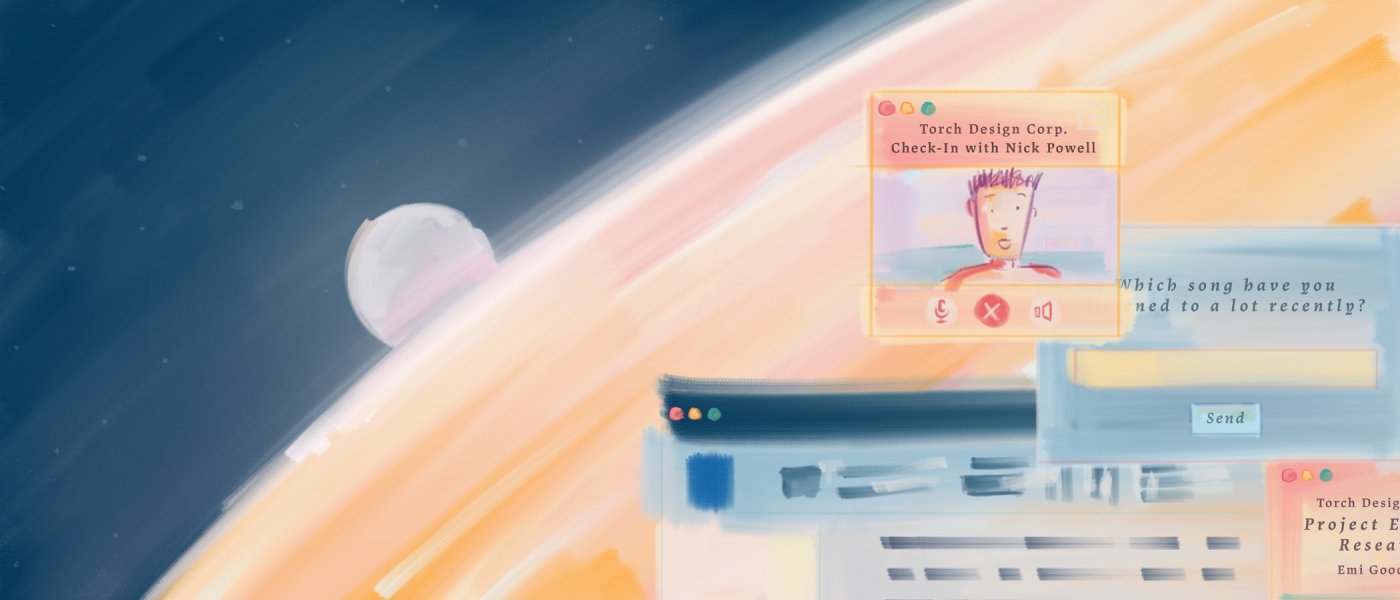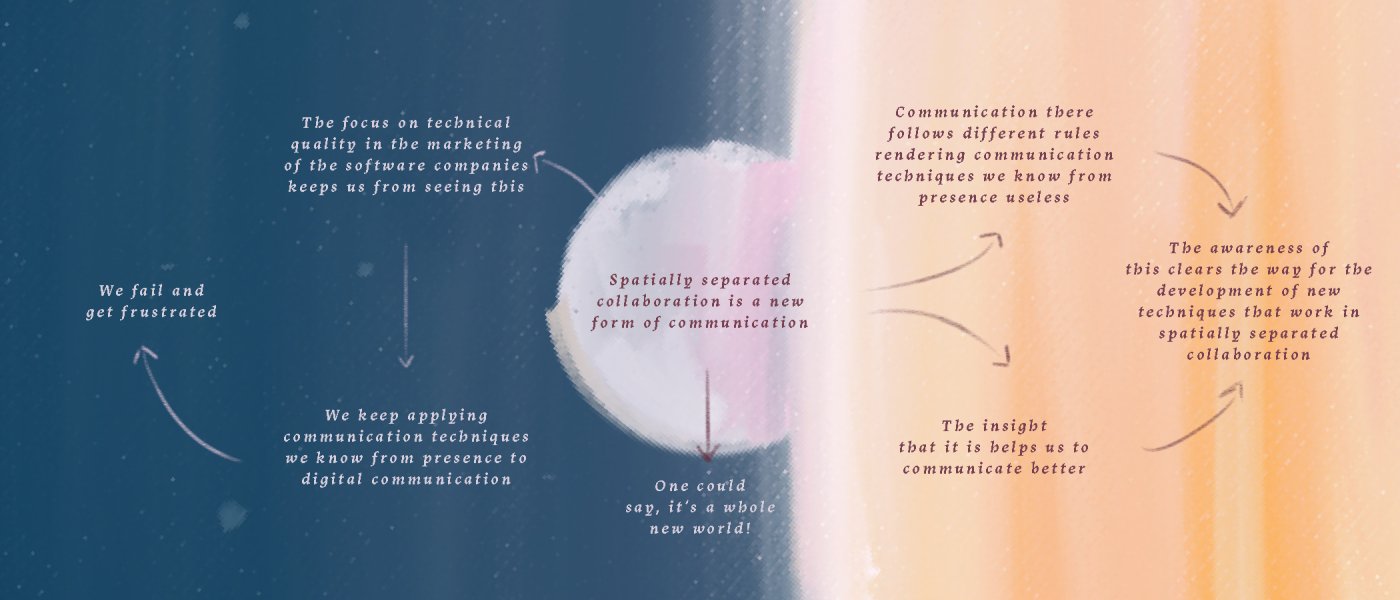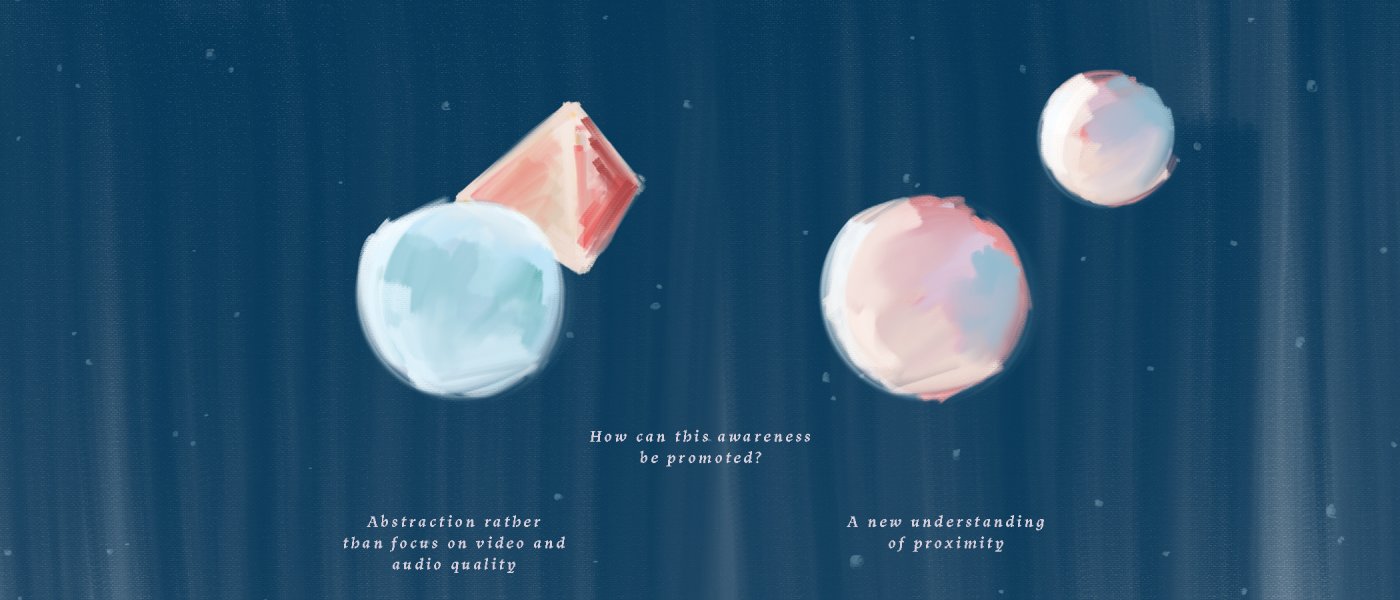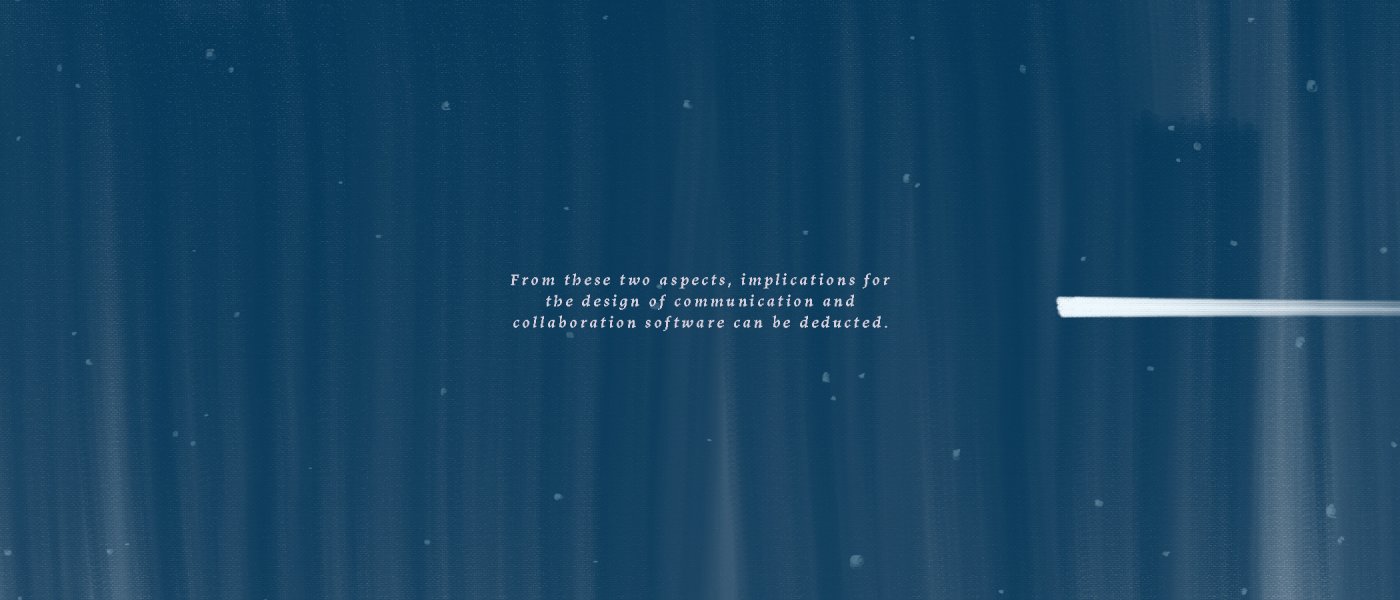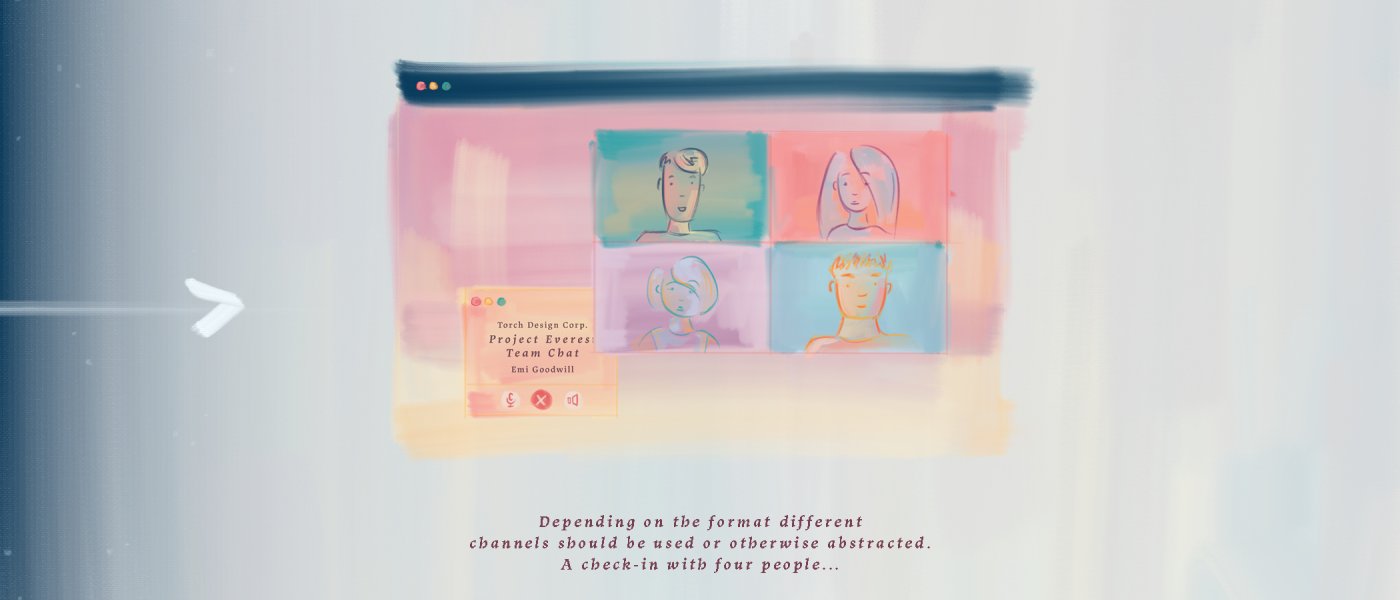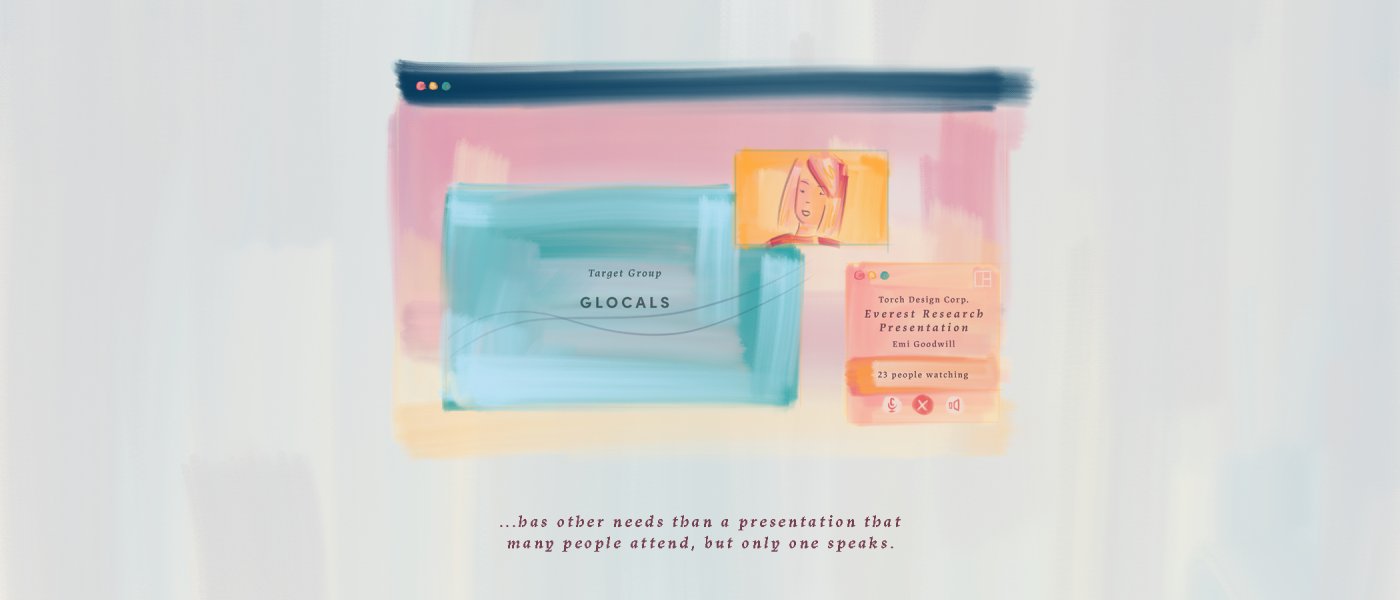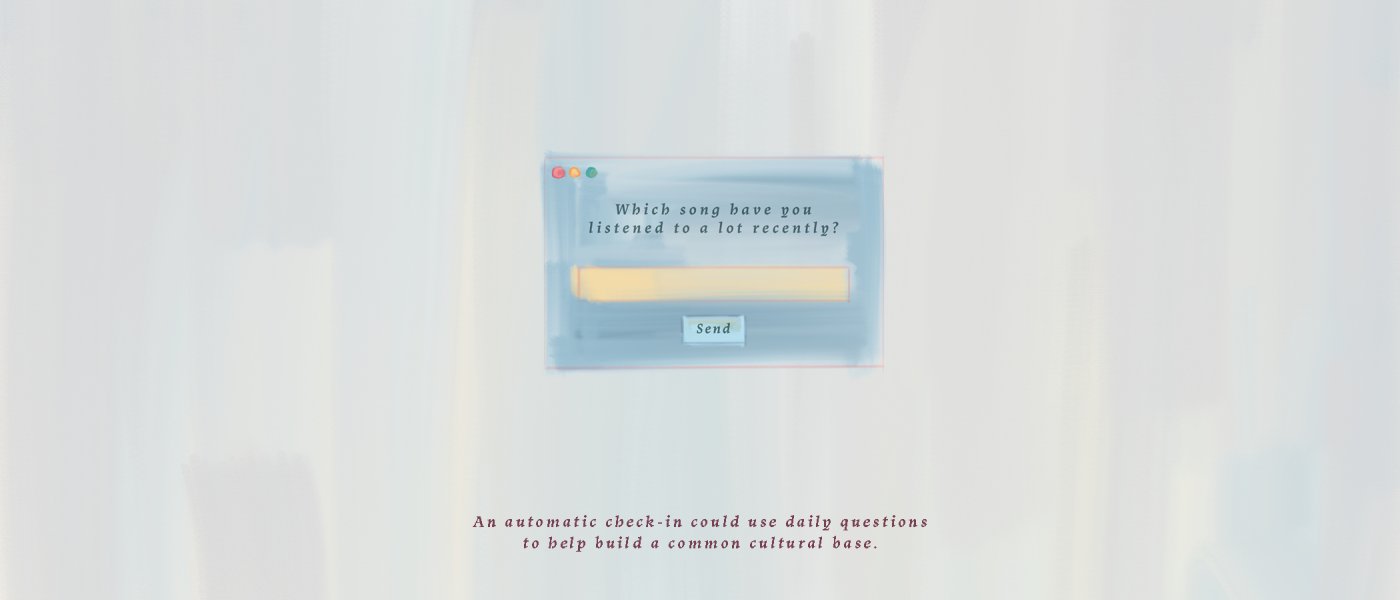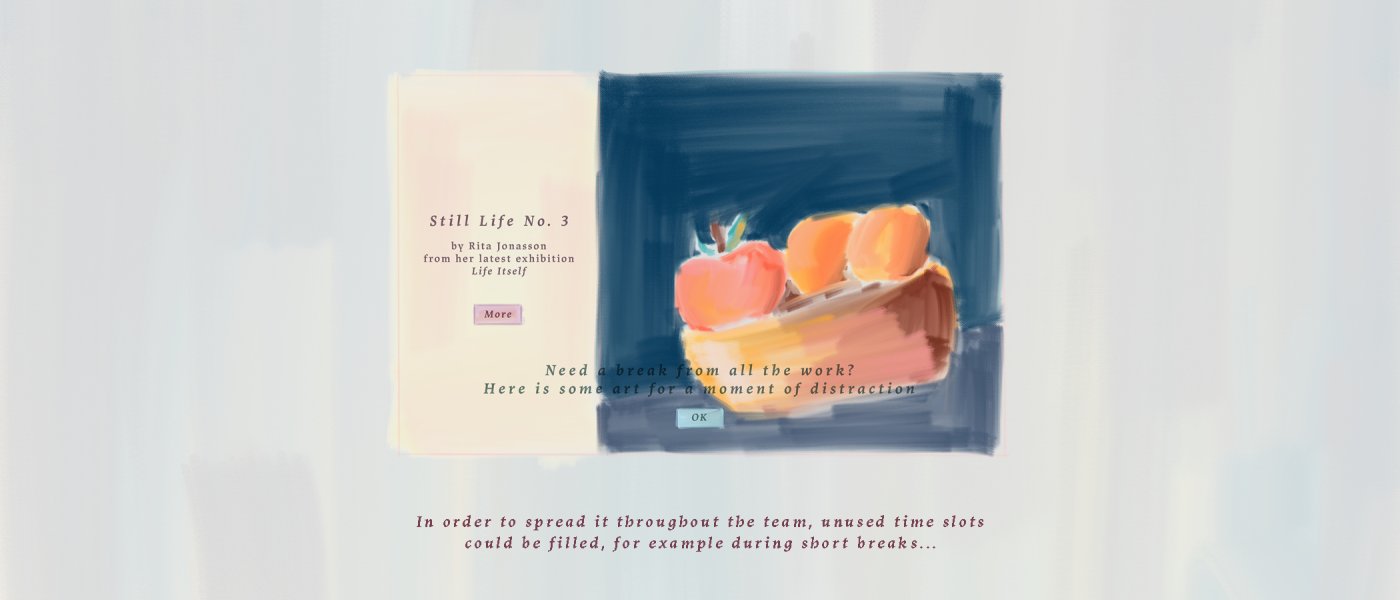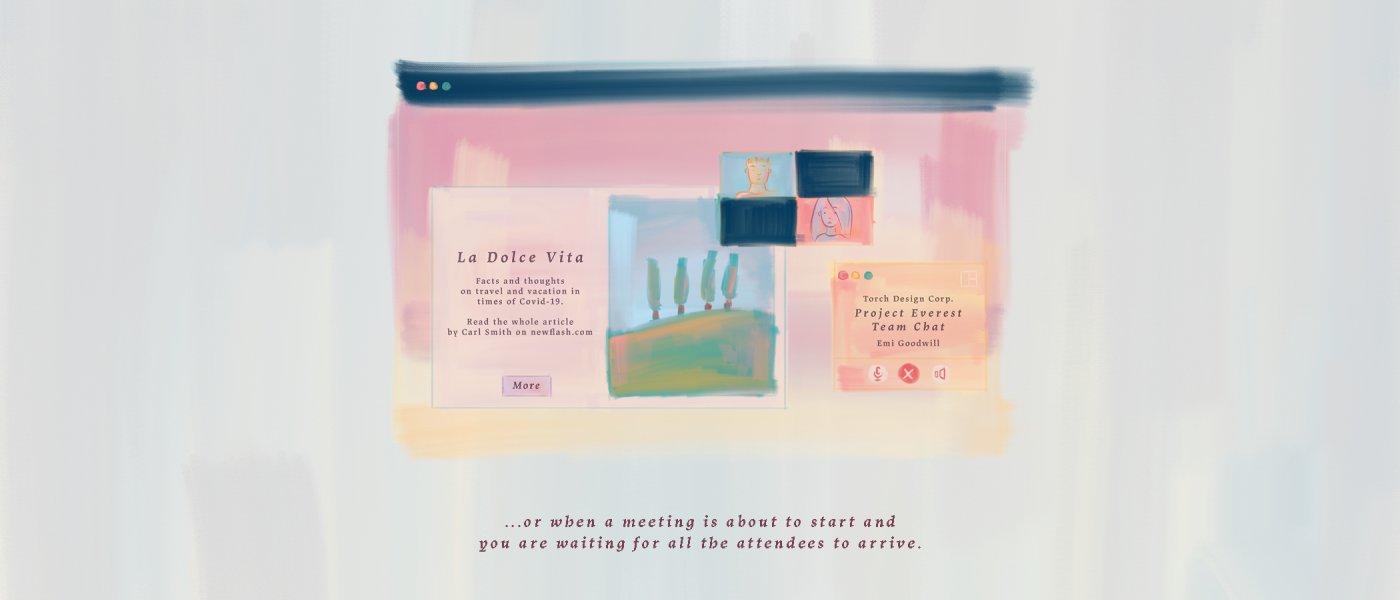Brave New World
Felix Fastenrath
Prof. Gert Trauernicht
Prof. Dr. Martina Fineder
Dipl. Des. Anne Kurth
2 20
4
Research- and Strategy Project
Contact hello@ffastenrath.comTalking via video call may look like talking to someone face to face, but it feels different and the messages we intend to send will certainly be received differently: Hardware and software act as filters that influence every aspect of communication individually and differently – gestures, facial expressions, tone of voice, volume, timing. As a result, communication techniques based on the finely-tuned interplay of these aspects become confused and no longer function as we are used to from communication in presence.
The transmission quality and the technical advertising promises of the software manufacturers make it difficult to see that this is a different form of communication – but only with the awareness that it is something different can new communication techniques be developed and learned.
This has implications for the design of video and other communication software, which should encourage the development of new communication techniques and thus make spatially separated communication more effective and more pleasant.
The striving for ever more naturalistic transmission quality should be replaced by abstraction, which can take the place of certain aspects. Which channels are important and which are not, should be up to the users themselves to determine according to the format of the collaboration. Furthermore, the understanding of proximity should develop from a purely physical to a thematic or cultural one. By promoting a common cultural basis and strengthening the casual dialogue with the colleagues, common associations and images are created, which in presence are the very thing that renders communication techniques such as humour or allusions possible.
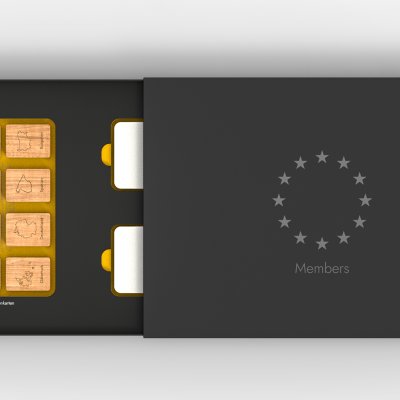
Members
Camilo Martins
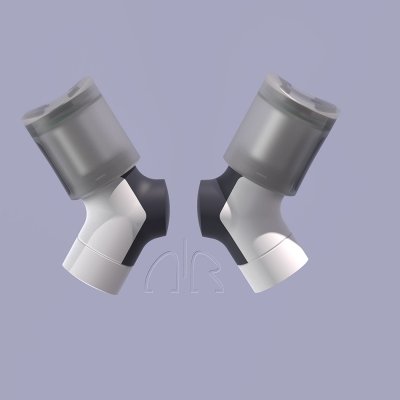
AIR
Ina van der Linde

2°C
Alexandra Katsnelson




